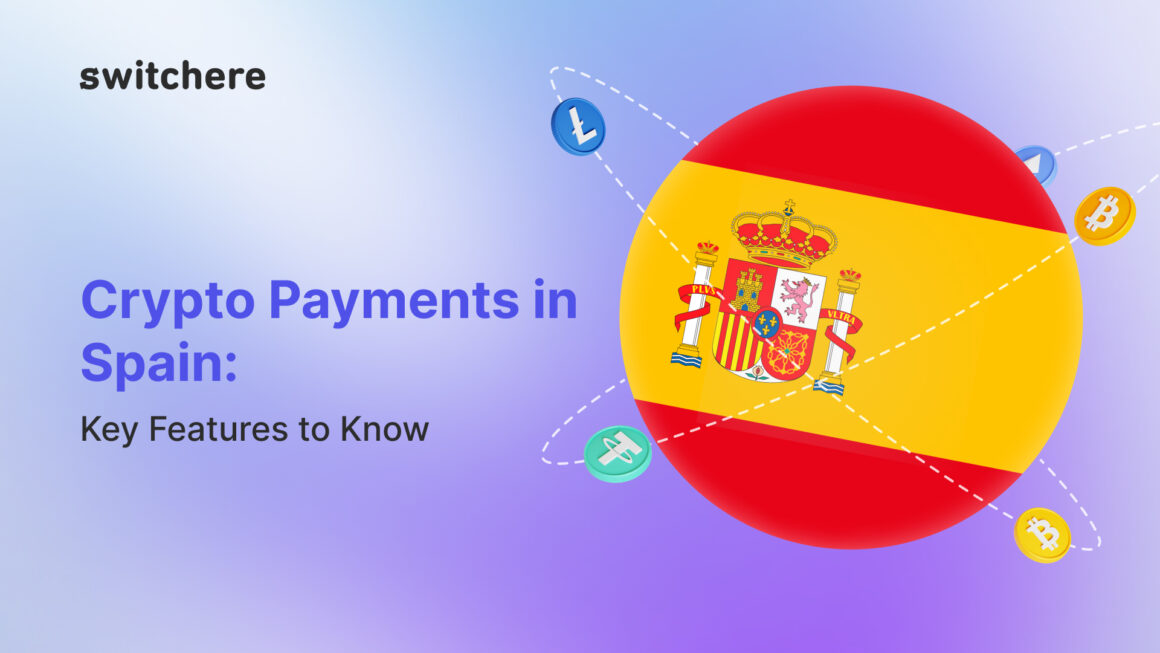Spain has been striving to establish a robust framework to oversee and govern the use of digital assets while acknowledging their potential to revolutionize financial transactions. This brief analysis delves into Spain’s current regulatory framework for cryptocurrencies, the existing status of digital currencies and payments, as well as the licensing and registration requisites for businesses and cryptocurrency exchange service providers within the country.
Current Status of Cryptocurrencies and Payments in Spain
Spain has shown a progressive stance towards the adoption and regulation of cryptocurrencies. At the date of writing, the country has not issued specific legislation to comprehensively govern digital currencies. Instead, Spanish regulatory bodies, notably the Bank of Spain and the National Securities Market Commission (CNMV), have provided guidelines and warnings to investors and business entities on the potential risks related to virtual assets and the importance of due diligence.
Despite the need for comprehensive regulative norms and rules, Spain has taken a proactive approach in integrating cryptocurrencies within its existing legal and fiscal frameworks. The Spanish Tax Agency (Agencia Tributaria) has been keen on imposing taxes on cryptocurrency-related activities. Cryptocurrency gains are subject to capital gains tax, similar to other forms of investment. Also, businesses that accept payments in cryptocurrencies are required to include these transactions in their tax filings, considering them as part of their revenue.
Regarding the use of cryptocurrencies in payments, Spain has seen an increasing trend in acceptance. Some business entities, particularly those operating in the tech and tourism sectors, have started embracing virtual assets as a means of payment. However, widespread adoption in everyday TXs is still evolving, hindered by regulatory uncertainties and concerns conditioned by the volatility and security concerns of these digital assets.
Crypto Licensing and Registration Requirements
Businesses dealing with cryptocurrencies in Spain are not forced to follow specific licensing conditions. However, they are obligated to follow existing EU regulations concerning CTF and AML/KYC measures. In practice, crypto exchanges and related service providers must complete registration with the Bank of Spain, the CNMV, or the Institute of Official Accountancy, depending on the character of their operations and the services they render.
The lack of a dedicated licensing regime for cryptocurrency businesses in Spain has been a matter of debate and dispute. The scarcity of clear directives may result in regulatory ambiguity, potentially leaving businesses in a state of uncertainty about compliance standards.
Cryptocurrency Payment Gateway Options in Spain
To accept cryptocurrency payments, businesses in Spain can integrate various payment gateways or services. These platforms facilitate the acceptance of cryptocurrencies and can convert them to fiat currency if desired.

Paylands
In essence, Paylands is a Spanish-based fintech company operating from 2011 onwards. It positions itself as a one-stop online payment gateway for businesses of all sizes in Europe, Asia, the Americas, Africa, and Oceania. Its online payment solutions encompass virtual and physical POSs, instant transfers, subscription payments, and others.
By and large, it renders its services to hotels, small and large-scale businesses, and online marketplaces. Its integration tools include API software, plugins, and customized solutions for its partners.
Ipint
Ipint is a relatively fresh player in the crypto industry — it has been operating from 2021 onwards. Fundamentally, it is a Singapore-based end-to-end crypto payment service provider designed for Web 2.0 and Web 3.0 businesses. In fact, it renders cross-border pay-ins and payouts, turnkey POS solutions, and white-label merchant tools.
Switchere
Contrary to Paylands and Ipint, Switchere is a Lithuania-based fintech firm that renders mainstream virtual currency exchange services for businesses and individuals alike. Being a perfectly licensed and regulated exchange with all EU permits, Switchere offers a wide selection of crypto-related services — instant crypto purchases, payouts in crypto and fiat, a free testing environment for merchants, and full KYC onboarding.
To top it all, Switchere offers progressive partner integration methods ranging from API tools to easily embeddable Buy Crypto buttons, ready-made branded plugins, and white-label widget solutions, just to name a few.
Conclusion
In conclusion, while Spain has made strides in recognizing and integrating virtual currencies into its financial ecosystem, the shortage of specific regulations poses multiple uncertainties. The onus lies on Spanish regulatory bodies to construct a comprehensive and transparent framework that safeguards investors, fosters innovation, and ensures the stability of the financial system.
